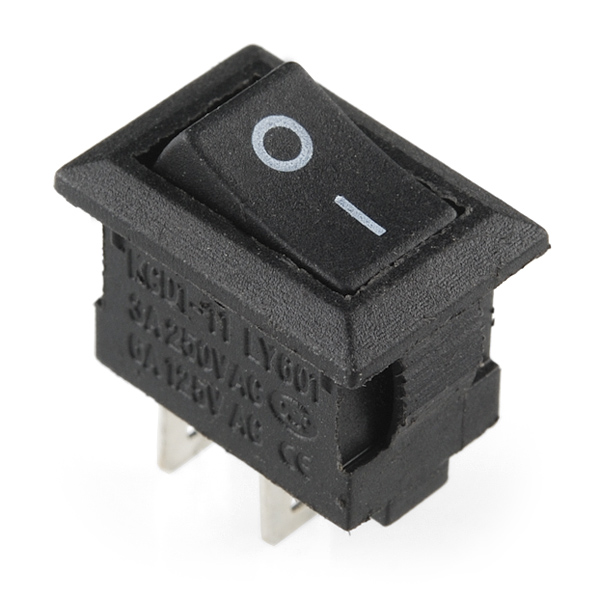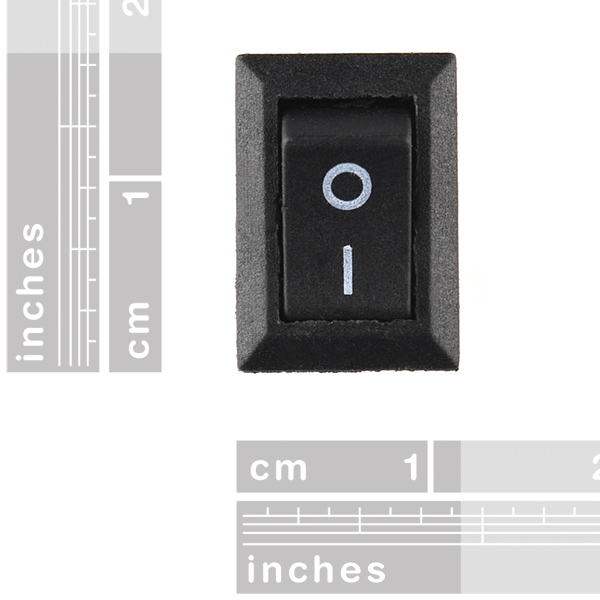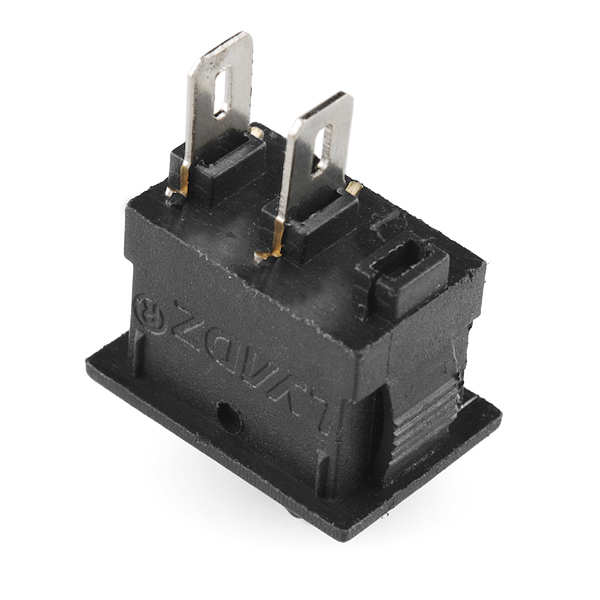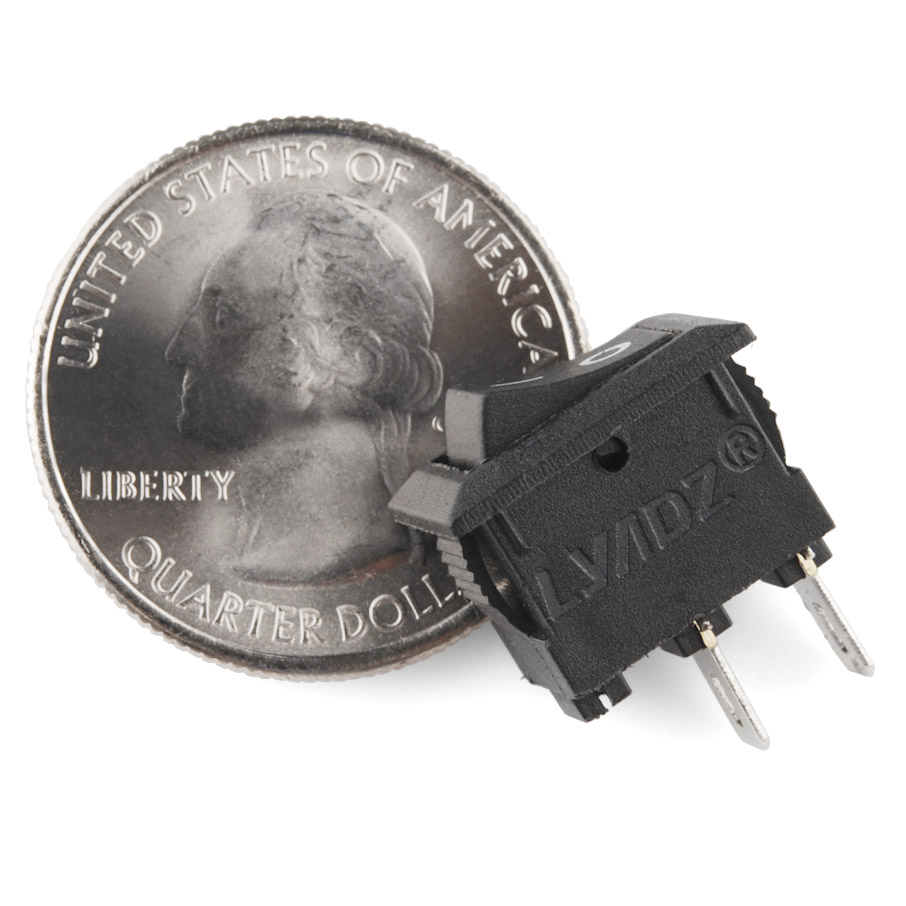Rocker Switch - Medium
The rocker switch is a classic and this one is a great size for an unobtrusive on/off switch. It can be panel mounted and has two tabs for connecting wire. You can either solder wire or use a quick-connect connector.
- Maximum Voltage: 250VAC
- Maximum Current: 3A @ 250VAC or 6A @ 125VAC
- Contact Resistance: ≥35mΩ
- Insulation Resistance: ≥100mΩ
- Operating Temperature: -25°C to 85°C
- Snap-in Panel Mount
- [Dimensional Drawing](http://cdn.sparkfun.com/datasheets/Components/Switches/Leiya rocker switch diagram.jpg)
Rocker Switch - Medium Product Help and Resources
Core Skill: Electrical Prototyping
If it requires power, you need to know how much, what all the pins do, and how to hook it up. You may need to reference datasheets, schematics, and know the ins and outs of electronics.
Skill Level: Noob - You don't need to reference a datasheet, but you will need to know basic power requirements.
See all skill levels
Comments
Looking for answers to technical questions?
We welcome your comments and suggestions below. However, if you are looking for solutions to technical questions please see our Technical Assistance page.
Customer Reviews
No reviews yet.





Is it possible to get a rocker switch the same size as this one but SDPT (3 pin)?
I soldered wires to the leads on about 50 of these. If you are careful it can be done consistently.
These are typically meant to hook up to female blade connectors. If you want to solder to them, scuff the metal with sandpaper until it is all copper - solder will now stick easily :) They're not copper on the surface because copper is too soft for connectors and will also oxidize, so there's some sort of harder (and harder-to-solder) metal over the copper.
These are nice little switches. Sparkfun is an excellent resource.
You cannot solder these switches. The plastic in the switch melts so rapidly that you'll never get the metal tabs heated up enough to get the solder to bond properly. I tried it twice and roasted both switches in less than 10 seconds. Use connectors.
I've soldered several of these, never any problems.
I don't understand the dimensional drawing... it seems way off. The width of the switch is only 10.5mm whereas the depth of the little lip is 14mm? I am reading it wrong?
Looks like whoever was Photoshopping out the watermark in the background erased the decimal point as well. Most likely 1.4mm. Same issue with the length of the quick connect tabs - they are more likely 5.0mm long and not 50mm ;)
The amperage limits seem to be reversed with respect to their voltages in the Features above.
Also that's probably resistive current, not reactive. That's probably something that should be explained.